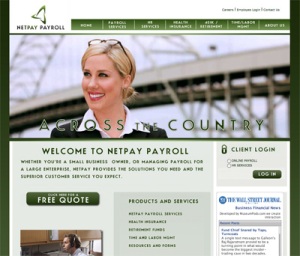OASDI and SSI Program Rates & Limits, 2012
February 6, 2012
Social Security Program Rates & Limits 2012
Social Security (Old-Age, Survivors, and Disability Insurance)
Employers: 6.20%
Employees (through December, 2012): 4.20%
Medicare (Hospital Insurance) Employers and Employees, each: 1.45%
Maximum Taxable Earnings Social Security: $110,100
Medicare (Hospital Insurance): No limit
Are you satisfied?
April 22, 2011
2011 FICA Tax Rates
January 11, 2011
FICA Tax
Payroll taxes for Social Security benefits are collected under the authority of the Federal Insurance Contributions Act or FICA. Most people simply refer to these taxes as FICA tax. This tax had its origins back in 1935, when the tax was part of the Social Security program.
What are FICA Taxes?
When the tax provisioning portion of the Social Security Act – Title VIII – was taken out of the program in 1939, it was placed into the Internal Revenue Tax code. At that time, a more descriptive name than Title VIII was needed, so the tax was renamed as the Federal Insurance Contributions Act or simply FICA. To this day, FICA remains the tax collection mechanism for Social Security.
FICA Tax Rates
FICA is used to provide for the federal system of old age, survivors, disability and hospital insurance. The first three of these are funded by the Social Security system, while hospital insurance is funded by a Medicare tax. Both employees and employers are required to contribute to FICA taxes through regular payroll deductions. The good news is that there is a limit to the amount of FICA taxes an employee is required to pay.
Generally, FICA taxes are collected at a rate of 7.65% on gross earnings – earnings before any deductions. The breakdown of FICA is 6.2% for Social Security (Old-Age, Survivors, and Disability Insurance or OASDI) and 1.45% for Medicare. The following table shows the FICA limits for 2005 through 2011:
2011 FICA Tax and Social Security Limits
- FICA Tax Rate = 7.65% for employers (see note below)
- FICA Tax Rate = 5.65% for employees (see note below)
- Social Security Limit = $106,800
- Maximum Social Security Contribution = $6,621.60 (employer) / $4485.60 (employee)
Note: In 2011, the FICA tax rate for employees was lowered to 5.65%. The employer tax rate remained unchanged, while the Social Security rate for employees was lowered to 4.20%.
Social Security (OASDI) Wage Base $106,800, Percentage: 6.2%
Medicare Wage Base No Limit, Percentage 1.45%
For self-employed individuals, the 2010 social security wage base is $106,800, with the social security tax rate remaining at 12.4%. There is no Medicare wage limit, and the Medicare tax rate remains at 2.9%. The tax applies to the net earnings from self-employment.
Federal Tax Deposit Rules
In late 2009, the Internal Revenue Service sent notices to all employers notifying them of their deposit frequency for 2010. It
remains the employer’s responsibility to deposit federal taxes at the correct frequency even if a notice was not sent by the IRS, or if the
notice sent was incorrect.
1. An employer is a monthly depositor for 2010 if the aggregate amount of employment taxes reported for the period July 1, 2008 to June 30, 2009 is $50,000 or less, unless a daily deposit is required as explained in Rule 3 below. Deposits are due on the 15th of the following month. If the 15th falls on a holiday or weekend, the due date is extended to the next banking day.
Note: New businesses deposit using the monthly deposit rule, unless a daily deposit is required under Rule 3.
2. An employer is a semi-weekly depositor for 2010 if the aggregate amount of employment taxes reported for the period July 1, 2008
to June 30, 2009 exceeds $50,000. Deposits for payments made on Wednesday, Thursday, and/or Friday are due on or before the
following Wednesday. Deposits for payments made on Saturday, Sunday, Monday, and/or Tuesday are due on or before the following
Friday. In the event of a holiday, employers have three banking days from the end of the semi-weekly period to deposit.
Note: Semi-weekly employers with an accumulated unpaid liability of $100,000 or more during the deposit period must deposit within
one banking day of the payroll check date, as stated in Rule 3. If the semi-weekly period includes the end of the first month of the
quarter and the beginning of the second month, or the end of the second month and the beginning of the third month, only one deposit
is required. If an employer has payroll for two different reporting quarters within the same semi-weekly period, two deposits must be made.
3. Employers with an accumulated unpaid liability of $100,000 or more during the deposit period must deposit within one banking day of the payroll check date. When a monthly depositor is subject to this rule, that employer immediately becomes a semi-weekly depositor for the rest of 2010 and for 2011. Also, any monthly depositor who had a deposit of $100,000 or more between January 1, 2009 and December 31, 2009 is considered a semi-weekly depositor for the rest of 2009 and for 2010.
4. Form 941 employers with accumulated liability of less than $2,500 for the entire quarter may deposit or remit the amount with a timely filed Form 941, Employer’s Quarterly Federal Tax Return.
5. Form 944 employers with accumulated liability of less than $2,500 for the entire year may deposit or remit the amount with a timely filed Form 944, Employer’s Annual Federal Tax Return.
Our New Brochure
August 2, 2010
Netpay Sponsors La Salle Golf Tournament
July 26, 2010
For the eighth consecutive year, Netpay Payroll, Inc. is proud to sponsor the prestigious La Salle Golf Tournament, in association with the Philippine-American Society of CPAs (PASCPA).
The La Salle Alumni Association of Southern California is teaming-up with FilAm Golf and Golph cup in bringing you this year’s “United for a Cause” golf tournament to benefit Bantay Bata in the Philippines. Bantay Bata is a child welfare program aimed to protecting disadvantaged and at-risk children through a nationwide network of social services.
This year’s tournament will be at Sierra Lakes in Fontana, on Saturday, July 31st, 2 pm shotgun start. The $100 entry fee includes green fee, cart, dinner buffet and raffle entry. Please support us by signing up for the tournament and inviting other golfers to complete your foursome. We are committed to making sure that all of you will have a fun and memorable time.
Two new tax benefits are now available to employers hiring workers who were previously unemployed or only working part time. These provisions are part of the Hiring Incentives to Restore Employment (HIRE) Act enacted into law today.
Employers who hire unemployed workers this year (after Feb. 3, 2010 and before Jan. 1, 2011) may qualify for a 6.2-percent payroll tax incentive, in effect exempting them from their share of Social Security taxes on wages paid to these workers after March 18, 2010. This reduced tax withholding will have no effect on the employee’s future Social Security benefits, and employers would still need to withhold the employee’s 6.2-percent share of Social Security taxes, as well as income taxes. The employer and employee’s shares of Medicare taxes would also still apply to these wages.
In addition, for each worker retained for at least a year, businesses may claim an additional general business tax credit, up to $1,000 per worker, when they file their 2011 income tax returns.
“These tax breaks offer a much-needed boost to employers willing to expand their payrolls, and businesses and nonprofits should keep these benefits in mind as they plan for the year ahead,” said IRS Commissioner Doug Shulman.
The two tax benefits are especially helpful to employers who are adding positions to their payrolls. New hires filling existing positions also qualify but only if the workers they are replacing left voluntarily or for cause. Family members and other relatives do not qualify.
In addition, the new law requires that the employer get a statement from each eligible new hire certifying that he or she was unemployed during the 60 days before beginning work or, alternatively, worked fewer than a total of 40 hours for someone else during the 60-day period. The IRS is currently developing a form employees can use to make the required statement.
Businesses, agricultural employers, tax-exempt organizations and public colleges and universities all qualify to claim the payroll tax benefit for eligible newly-hired employees. Household employers cannot claim this new tax benefit.
Employers claim the payroll tax benefit on the federal employment tax return they file, usually quarterly, with the IRS. Eligible employers will be able to claim the new tax incentive on their revised employment tax form for the second quarter of 2010. Revised forms and further details on these two new tax provisions will be posted on IRS.gov during the next few weeks.
Workers Comp
March 12, 2010
Netpay is partnering with Farmers Insurance to bring our clients a pay-as-you-go workers comp option. Visit the workers comp page on our website at http://netpay-payroll.com to request a quote.
The New Netpay HR Services Module
February 17, 2010
We have added another amazing benefit to our package of services. This new product is our NETPAY HR SERVICES module. Included in this service is the ability to create your own employee handbooks, order federal and state labor law posters, print out HR forms from an extensive list and it includes an HR information section that keeps you in compliance no matter what state you’re in.
While our competitors charge a $1500 set-up fee and $25 a month per employee for this type of service, we have designed our HR product as an addition to your payroll service and are only charging $10 a month. It doesn’t matter how many employees you have or how often you use this service, the fee is $10 a month!
A user name and password have been issued to all Netpay clients. Please speak to your payroll specialist to receive this confidential information. They will only give it directly to your payroll contact person.
We sincerely hope you take advantage of this AMAZING benefit. We have priced it in a way that is affordable even for the smallest clients. It is critical that you spend some time reviewing this product and truly understand what Netpay has done here. This product offers Netpay clients the opportunity to stay in compliance with HR rules and regulations for a fraction of what the industry is charging.
Netpay Payroll Unveils New Website
December 30, 2009
Just in time for the new decade, we are happy to unveil the brand-spanking new netpay-payroll.com. After much thought and planning, we decided it was time for a fresh new image and are thrilled by the results. In addition to a revamped image and a much more intuitive user interface, the new website features all new content (including entries from this blog) and functionality.
We hope you enjoy the new site and that it satisfies your needs. Please email us with any suggestions at info@netpay-payroll.com. Happy surfing!





